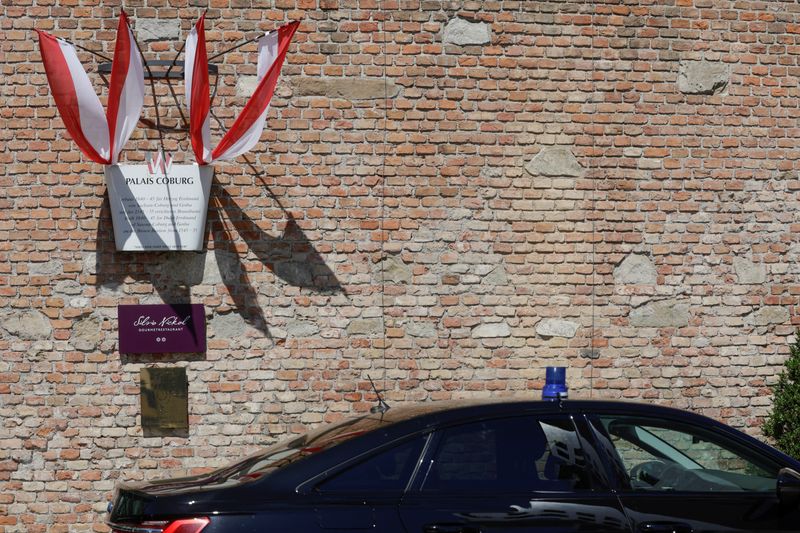Iran and U.S. try to salvage 2015 nuclear deal in Vienna
2022.08.05 13:37

A general view shows the entrance of Palais Coburg where closed-door nuclear talks with Iran take place in Vienna, Austria, August 4,2022. REUTERS/Lisa Leutner
(Reuters) – Iran and the United States held indirect talks in Vienna on Friday in a last ditch effort to reinstate a 2015 nuclear deal, Iranian state media reported.
Few expect a breakthrough. Each side has called on the other to compromise, while Tehran’s nuclear programme surges forward.
Reuters, citing one Iranian and one European official, reported in June that Tehran had dropped its demand for the removal of its Revolutionary Guards from Washington’s sanctions list.
On Thursday, a senior Iranian official told Reuters: “We have our own suggestions that will be discussed in the Vienna talks, such as lifting sanctions on the Guards gradually.”
White House national security spokesman John Kirby (NYSE:KEX) said on Thursday that the negotiations were “pretty much complete at this point.”
Iran’s chief nuclear negotiator Ali Bagheri Kani put the onus on the White House to compromise, saying in a tweet the United States should “show maturity & act responsibly.”
As Iran refuses to hold direct talks with the United States, the EU’s Enrique Mora shuttles between Bagheri Kani and the U.S. Special Envoy for Iran, Rob Malley.
Talks broke down chiefly because of Tehran’s demand that Washington remove the Revolutionary Guards from the U.S. Foreign Terrorist Organization (FTO) list. The U.S. has refused to do so.
Tehran also demands that the International Atomic Energy Agency (IAEA) drop its claims about Tehran’s nuclear activity, objecting to last year’s assertion by the U.N. nuclear watchdog that it had failed to fully explain uranium traces at undeclared sites.
Little remains of the 2015 accord between Iran and the United States, Britain, France, Germany, Russia and China, which lifted sanctions against Tehran in exchange for restrictions on its nuclear programme.
In 2018 then-President Donald Trump ditched the deal and reimposed harsh sanctions.
In response, Tehran breached the deal in several ways including rebuilding stocks of enriched uranium.
The EU’s top diplomat, Josep Borrell, submitted a compromise proposal in July and called on the parties to accept it to avoid a “dangerous nuclear crisis.” Two Iranian officials said Tehran “was not happy” with the draft text.
(dubai.newsroom@thomsonreuters.com)








